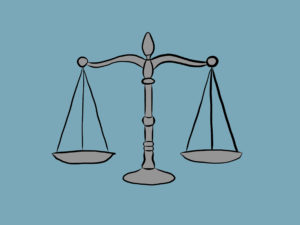
Legal Provision Restricting the Right to Appeal in Death Penalty Cases Struck Down as Denial of Due Process
- News
- 15 Jun 2017
In a judgment delivered today, the Privy Council has found unconstitutional a law excluding death row prisoners in St Vincent and the Grenadines (St Vincent) from applying for an extension of time to have their case reviewed by a higher court.
This decision is a significant legal development which will have relevance in other jurisdictions where rigid time restrictions are imposed on the appeals process in capital cases.
The appellant in this case, Patrick Lovelace, is the only remaining prisoner on death row in St Vincent. Lovelace was convicted of murder and sentenced to death in 2004. His conviction and sentence were initially quashed but then re-imposed following a re-trial in 2009. Lovelace appealed unsuccessfully against his conviction in 2012, and then in 2014, applied for an extension of time to appeal against his death sentence, as his previous appeal did not address this. This application was denied, on the basis that the court had no jurisdiction to grant an extension of time in death penalty cases.
In St Vincent, a person must apply for permission to appeal within 14 days of the date of their conviction. Whilst there is a provision allowing individuals to apply for an extension of time in other cases, death row prisoners are explicitly exempted from exercising this right.
The Death Penalty Project (DPP) challenged the constitutionality of this legal provision to the Privy Council, arguing it amounted to a denial of due process for death row prisoners. In its judgment, the Court found the rule to be “rigid” and “inflexible” and the offending section of the law was considered unconstitutional. The Privy Council’s decision is consistent with the approach taken by the Eastern Caribbean Court of Appeal in Cannonier & Others, one of our previous cases from St Kitts and Nevis which successfully addressed the same issue.
In its judgment, the Privy Council rejects earlier case law that suggests there are good reasons for imposing time restrictions on appeals in capital cases, in so far as this prevents prisoners from postponing their execution by lodging requests for an extension of time. The Court found that, if these concerns were once relevant, they no longer were, as such strategies would not be tolerated by the courts and there is nothing to suggest that these tactics are being deployed in practice.
Parvais Jabbar, Co-Executive Director of the DPP says:
We welcome this decision. The right to appeal and access to court are fundamental fair trial rights which must be respected. They are even more critical in death penalty cases, where the stakes are so much higher if errors occur, as they inevitably do in all justice systems. The matter will now be remitted to the Eastern Caribbean Court of Appeal who will decide whether to grant an extension of time in this case. We hope that this will result in Patrick being allowed the opportunity to have his death sentence reviewed by the courts
Note to Editors
The Death Penalty Project was instructed by Kay Bacchus-Baptiste, attorney-at-law in St Vincent and the Grenadines, and has been providing legal assistance to Patrick Lovelace since 2012. Paul Bowen QC, Brick Court Chambers, and Richard Thomas, Doughty Street Chambers, were instructed pro bono.

















